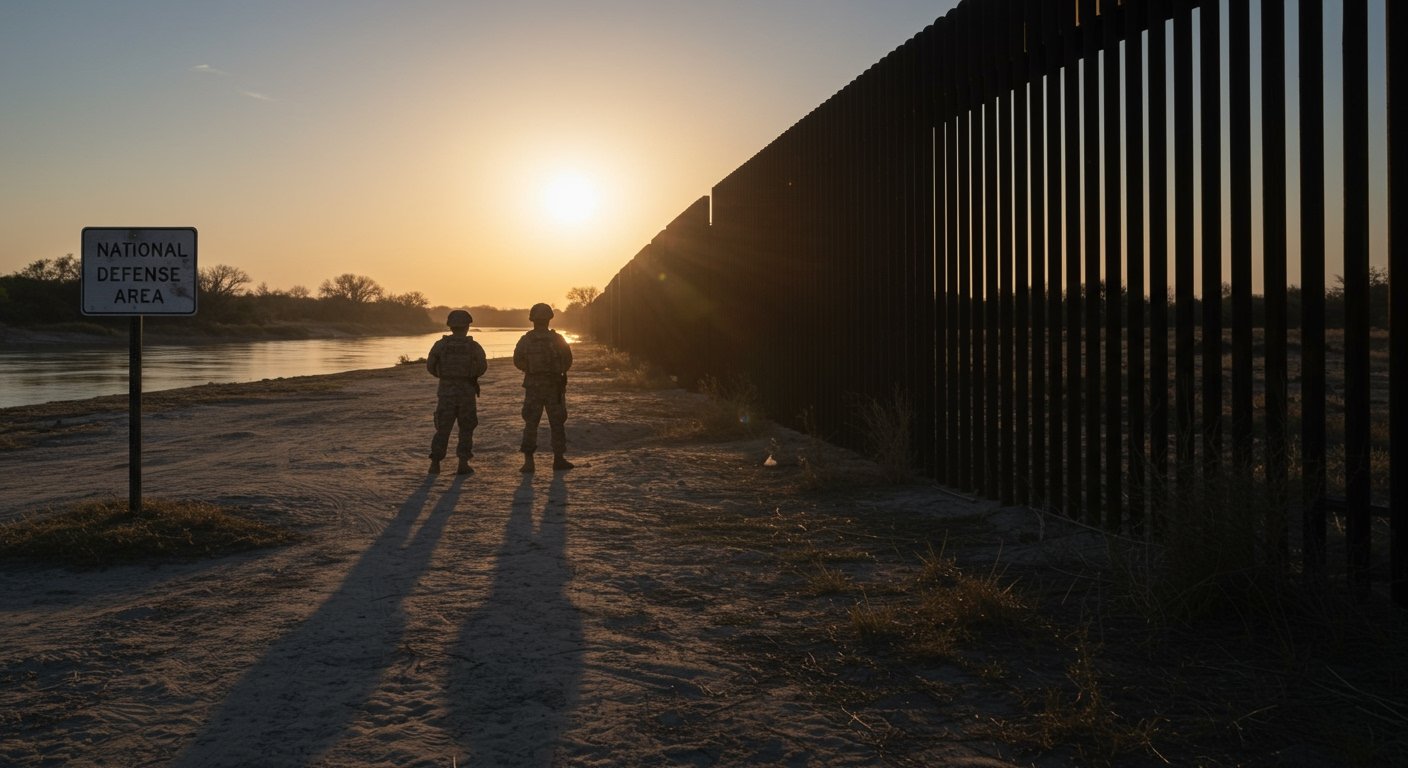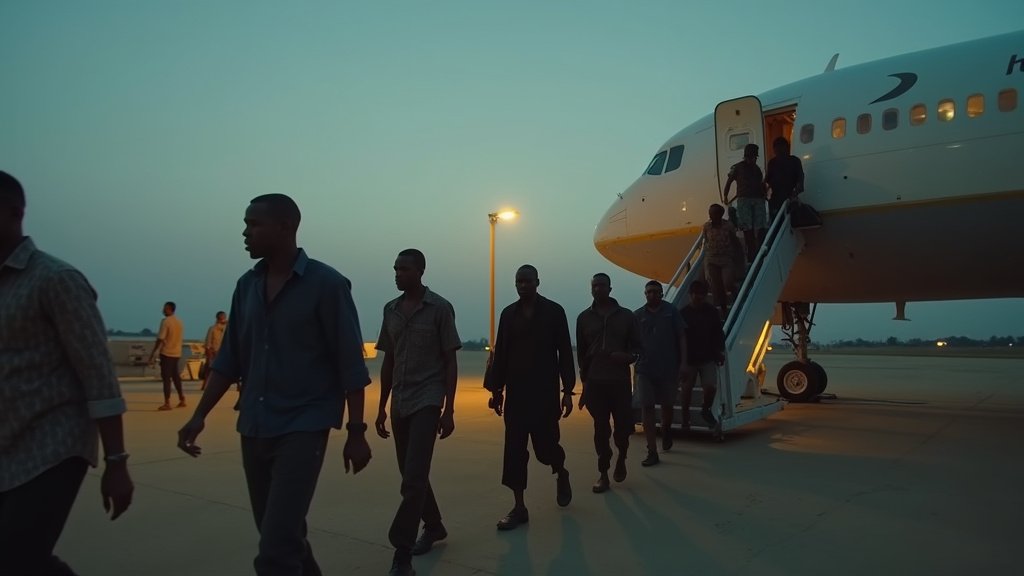Washington, D.C. – The Trump administration has significantly expanded the U.S. military’s operational footprint along the southern border, authorizing troops to detain individuals suspected of crossing illegally into designated national defense areas for potential federal prosecution. This marks a substantial increase in the military’s direct involvement in border enforcement activities, pushing the boundaries of conventional roles.
Latest Expansion into Deep South Texas
The most recent expansion, announced by the Air Force on Wednesday, June 25, 2025, involves the effective “annexation” – a term used in the announcement – of a new 400-kilometer stretch of the border in Texas. This newly militarized zone is considered an extension of Joint Base San Antonio, integrating civilian areas directly into a military installation’s purview for enforcement purposes.
A Defense Department official further clarified on Thursday, June 26, 2025, that the Navy has also been directed to create a separate new national defense area, contributing to the overall expansion of military control over border regions. The newly expanded zone along the Rio Grande in Texas covers both land and water and encompasses areas within two Texas counties, including key points near the cities of Brownsville and McAllen.
Preparations for implementing this new authority are underway, with the Air Force indicating its readiness to install warning signs along the boundary of the newly designated area to inform individuals that they are entering a national defense zone.
Expanded Authority and Legal Ramifications
Under the new directive, U.S. troops positioned within these national defense areas are authorized to detain individuals who cross the border illegally. These detentions are specifically linked to potential federal prosecution on charges of trespassing in a national defense area, a strategy designed to impose criminal penalties on migrants entering the country outside of official ports of entry.
This approach criminalizes entry into these specific zones, subjecting individuals to potential legal consequences distinct from civil immigration proceedings. The charges are being treated as a criminal misdemeanor, which carries significant penalties upon conviction, including the possibility of facing up to 18 months in federal prison.
Context of Prior Actions
This latest expansion is part of a broader strategy initiated under President Trump’s national emergency declaration concerning the border. The administration began implementing this policy of designating border areas as national defense zones earlier this year.
The first phase commenced in April with the establishment of a 275-kilometer zone along the border in New Mexico. This was followed by an expansion in May to encompass areas in western Texas before the significant new designation in deep South Texas announced this week.
Outcomes and Legal Scrutiny
The strategy of using military personnel to detain migrants and prosecuting them for trespassing on national defense areas has already yielded results, according to administration figures. At least three individuals have reportedly been detained by troops in New Mexico since the policy’s implementation in April. These individuals were subsequently turned over to Border Patrol for processing through the newly established criminal prosecution pathway.
Overall, the administration reports that over 1,400 immigrants have been charged with a criminal misdemeanor for entering these national defense areas across the previously designated zones. The potential for an 18-month prison sentence for this charge highlights the severity of the administration’s new enforcement posture.
These military deployments and the accompanying grant of authority to detain civilians are testing the limits of the Posse Comitatus Act. This federal law, enacted in 1878, generally prohibits the use of the U.S. military for domestic law enforcement purposes. Critics argue that authorizing troops to detain individuals directly involved in border crossing, even under the guise of trespassing on military-controlled land, blurs the lines between military defense and civilian policing roles in a manner potentially inconsistent with the act’s intent.
Broader Border Context
Paradoxically, the expansion of military presence and enforcement powers comes at a time when overall border arrests for illegal entry have seen a dramatic decrease this year, according to recent data. Despite this decline in crossings, the administration has pressed forward with augmenting military involvement and legal deterrents in specific border regions.
Conclusion
The Trump administration’s decision to expand military authority and presence to the southern tip of Texas represents a significant escalation in the use of defense assets for border control. By designating additional stretches of the border as national defense areas and empowering troops to detain migrants for criminal prosecution, the administration is implementing a hardline enforcement strategy that raises complex legal questions, particularly regarding the scope of military involvement in domestic affairs under the Posse Comitatus Act, as the strategy continues to unfold.






